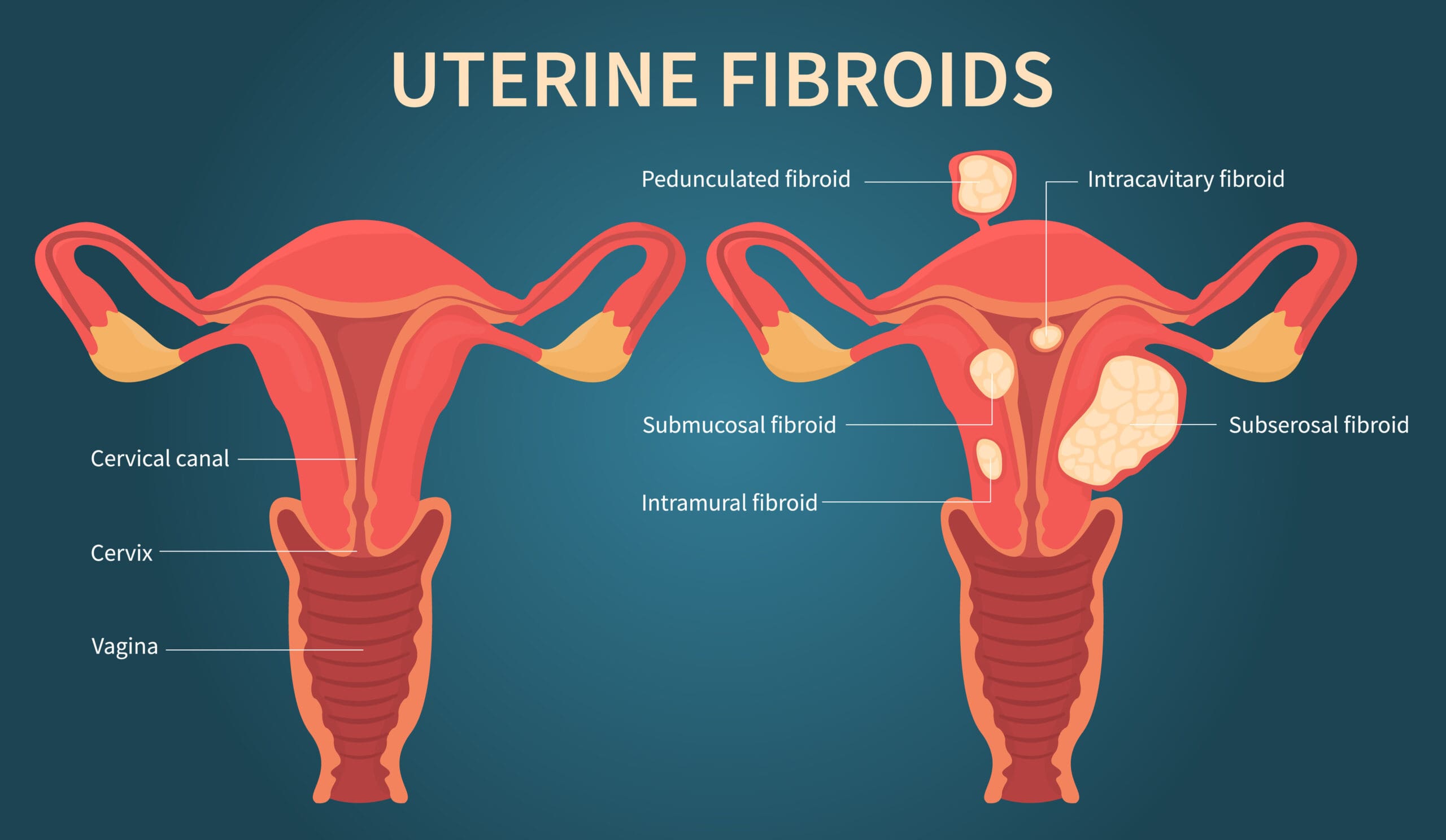What you should know about uterine fibroids
By naturopath Margaret Jasinska
Uterine fibroids are non-cancerous growths that can occur in or on the uterus. They can develop in women during their childbearing years and are especially common in women approaching menopause. Fibroids can create some health problems, but the good news is they rarely develop into cancer.
Fibroids can grow on the outside of the uterus, or inwards into the uterine cavity. Some can even develop a stalk and be called pedunculated fibroids. They are very common, especially in women over 35 where it is reported that between 20 to 40 percent have uterine fibroids of significant size. Fibroids are sensitive to the effects of oestrogen and will generally continue to slowly grow up until the time of the menopause. After menopause they usually shrink.
Possible symptoms of fibroids
Often, fibroids don’t cause any symptoms at all. Typical symptoms include heavy and prolonged menstrual bleeding, and sometimes lower abdominal pain, a sensation of fullness, or dragging feeling in the pelvis. If fibroids exert pressure on the bladder then painful and frequent urination may develop, while pressure on the bowel can cause backache and constipation. An ultrasound scan of the uterus is the normal way to diagnose fibroids.
Risk factors for developing uterine fibroids:
- Obesity
- Hyperinsulinaemia
- Early age of the start of menstruation
- Late age of menopause
- High alcohol intake
- High intake of dairy products and sugar
- Vitamin D deficiency
- Poor liver health, resulting in poor breakdown and excretion of oestrogen
- Constipation, leading to recirculation of oestrogen
- Progesterone deficiency
Natural remedies for fibroids
Where possible, try not to tick any of the risk factors listed above. Being overweight is a risk factor because it means your body produces more insulin than is ideal. Insulin is a growth promoting hormone. Also, body fat can produce oestrogen, fuelling fibroid growth. Follow the easy guidelines in the book I Can’t Lose Weight and I Don’t Know Why.
Find out if you have a fatty liver. If so, your liver won’t break down hormones efficiently, allowing a build up. See the book Fatty Liver: You Can Reverse It for effective strategies.
Reduce foods and drinks in your diet that raise inflammation. That’s mainly sugar, high carbohydrate foods, alcohol, dairy products and artificial food additives. It’s best to base your diet on animal protein such as poultry, seafood, eggs and meat, along with lots of vegetables. Nuts, seeds and spices contain small amounts of phyto-estrogens, which help reduce the growth-promoting effects of you body’s own oestrogen.
Insufficient progesterone production is a major problem in modern society. Women over the age of 35 naturally don’t produce as much progesterone anymore and this is why their fertility declines. If you have stress in your life, your progesterone will be converted into the stress hormone cortisol. Progesterone helps to balance the growth-stimulating effects of oestrogen. Natural progesterone cream is very helpful for fibroids. It requires a doctor’s prescription. Contact us if you’d like more information.
Being low in vitamin D worsens lumps and bumps in the body such as fibroids, polyps and cysts. For many people it’s not possible or safe to be outside in the sun often enough to produce sufficient vitamin D. Ask your doctor for a vitamin D blood test.









Leave A Comment